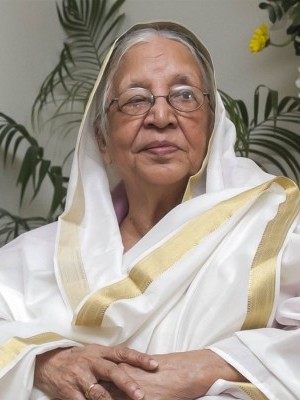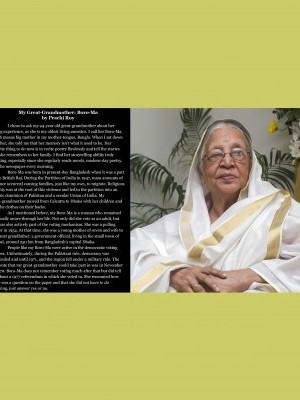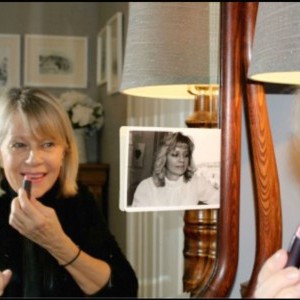Prachi Roy
United Nations International School | New York, NY | 7th
Inspirational Family Member
My Great-Grandmother
I chose to ask my 94-year old great-grandmother about her voting experience, as she is my oldest living ancestor. I call her Boro-Ma, which means big mother in my mother-tongue, Bangla. When I sat down with her, she told me that her memory isn’t what it used to be. Her favorite thing to do now is to recite poetry flawlessly and tell the stories that she remembers to her family. I find her storytelling ability truly amazing, especially since she regularly reads novels, modern-day poetry, and the newspaper every morning.
Boro-Ma was born in present-day Bangladesh when it was a part of the British Raj. During the Partition of India in 1947, mass amounts of violence occurred causing families, just like my own, to migrate. Religious identity was at the root of this violence and led to the partition into an Islamic dominion of Pakistan and a secular Union of India. My great-grandmother moved from Calcutta to Dhaka with her children and just the clothes on their backs.
As I mentioned before, my Boro-Ma is a woman who remained politically aware through her life. Not only did she vote as an adult, but she was also actively part of the voting mechanism. She was a polling officer in 1954. At that time, she was a young mother of seven and wife to my great grandfather, a government official, living in the small town of Barisal, around 250 km from Bangladesh’s capital Dhaka.
People like my Boro-Ma were active in the democratic voting process. Unfortunately, during the Pakistani rule, democracy was suspended until 1971, and the region fell under a military rule. The first vote that my great-grandmother could take part in was in November of 1970. Boro-Ma does not remember voting much after that but did tell me about a 1977 referendum in which she voted. She recounted how there was a question on the paper and that she did not have to do anything, just answer yes or no.
Deadline Extended
There's still time to join Women Leading the Way.
Become a part of our storytelling archive. Enroll your class today.
Join the Project



